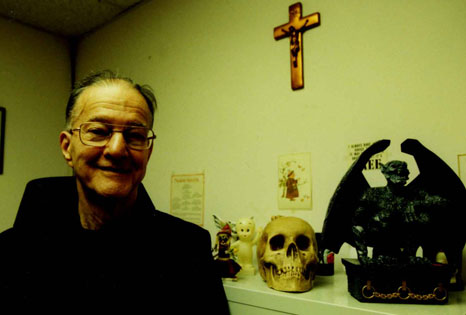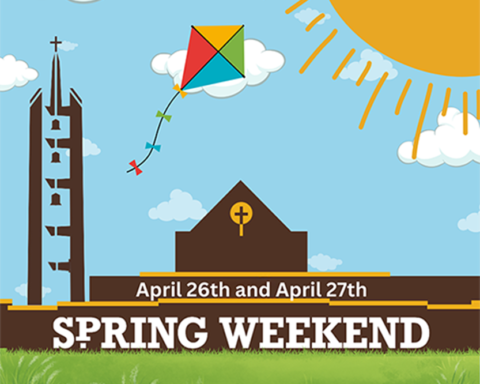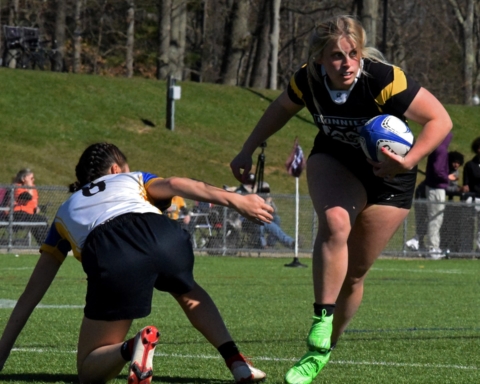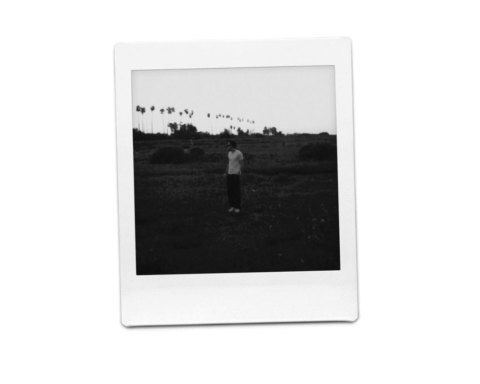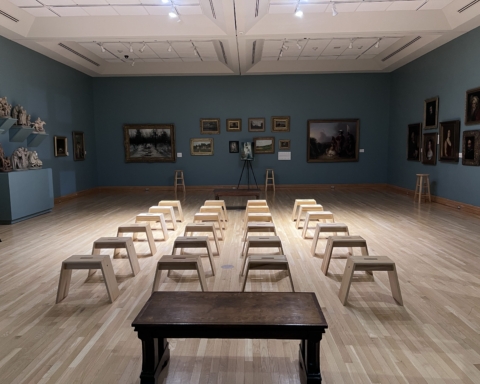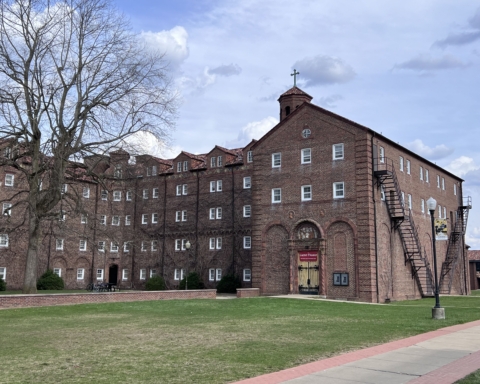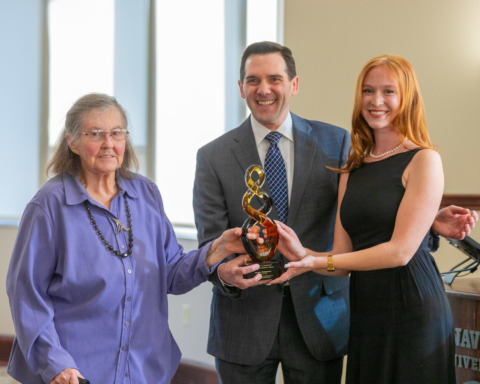Alphonsus Trabold with some of the materials he used in class
Photo courtesy of the Bonaventure archives
BY: DAVID SCIBILIA, FEATURES EDITOR
Alphonsus Trabold may have been the only professor at St. Bonaventure University who didn’t allow students to sit in the front row of his class.
In the 1970s, Trabold taught Psychical Research and the Nature of Man — commonly known as spooks by students. Trabold, half in jest, would keep the front row empty — just in case any spirits wanted to sit in, said John O’Connor, a guardian at the Bonaventure friary.
“[Trabold] would make jokes during class if the door suddenly shut,” said O’Connor. “He was known to say ‘Oh, I guess one of my friends is leaving early today.’”
This class focused on the paranormal aspects of theology and attempted to provide insight into issues that seemed unexplainable, according to the class materials. This class discussed possession, exorcisms, extrasensory perception, spirits and how they fit into a theological context.
“A lot of people are familiar with the movie The Exorcist,” said Dominic Monti, a distinguished professor of Franciscan studies who knew Trabold. “That’s one of the reasons I think the class was so popular.”
But Trabold said in a 1985 People Talk article he wouldn’t classify himself as a true exorcist, despite filling the role of exorcist for the Buffalo Diocese for several years.
“My main work is to counsel people who have had some kind of supernatural or psychic experience and try to help them understand it,” said Trabold in the article. “Exorcisms should be used as a last resort. I think in most cases, we can find explanations for the person’s experiences other than demons.”
Despite some seeing paranormal activity as a non-serious topic, O’Connor said Trabold, had no issue keeping students engaged.
“He was just so credible,” said O’Connor. “Students cared and stayed interested because Trabold taught the class in a way that was grounded. He said that in most cases there were other explanations than possession, but there were also some cases he couldn’t explain.”
Some students said they would be more likely to stay engaged in a class that covers paranormal activity.
“I get why some people may not take it seriously,” said David Hazall-Farrell, a sophomore computer science major. “But I think that kind of stuff is really interesting. I could see myself wanting to go to that class.”
Trabold’s teaching style also played a role in its popularity, said Monti.
“It was one of the more popular courses, I’d say,” said Monti. “[Trabold] wasn’t a pushover, but he also wasn’t sending [students] through hoops. He genuinely wanted them to enjoy the course and get insights from it.”
In fact, Trabold only performed a couple of exorcisms in his lifetime — none of which were formal. For a formal exorcism to occur, the exorcist needs expressed permission from the bishop of the local diocese. But for a minor exorcism — which Trabold performed — the only things needed were an ordained priest and religious materials including holy water.
“I sprinkled her with holy water and commanded the demon to leave in the name of Jesus Christ, the Blessed Trinity, St. Michael and Our Lady of Immaculate Conception,” said Trabold in a 1974 Curran’s Corner article about an exorcism he performed.
Trabold saw no conflict between his religious beliefs and what the class taught.
“The church historically criticized contacting the dead because they thought it necessary at the time to protect the morals of its members,” said Trabold in a 2004 The Communication of Saints article. “Whereas clearly seventh-century psychism sought to undermine the moral authority and credibility of Yahweh, modern practice seeks to do just the reverse.”
Monti agreed.
“I don’t know if there’s a particularly Franciscan view on the paranormal, but our patron saint sometimes was living in another realm,” said Monti. “A lot of the times he was caught up in ecstasies. I think Francis was very aware of God’s presence.”
Some students said they would take the class if it were offered today.
“If it still counted as a theology credit, I’d definitely take it,” said Ross Linderman, a sophomore computer science major. “Even if I didn’t need it, I would consider taking the class if it fit into my schedule.”
Hazall-Farrell said he wasn’t surprised that a class of this nature was taught at Bonaventure because of the university’s ties to religion.
“I’ve just always kind of seen the two in the same light,” said Hazall-Farrell. “I’m kind of surprised it was offered for a theology credit, but this doesn’t seem like something too out of the ordinary for Bonaventure — especially when you take into account that it was the 1970s.”
Although unlikely to make a return, O’Connor said he thinks the class would be approved today.
“If somebody had the same credentials [Trabold] had, I don’t know why it wouldn’t be approved,” said O’Connor.
Scibild22@bonaventure.edu

